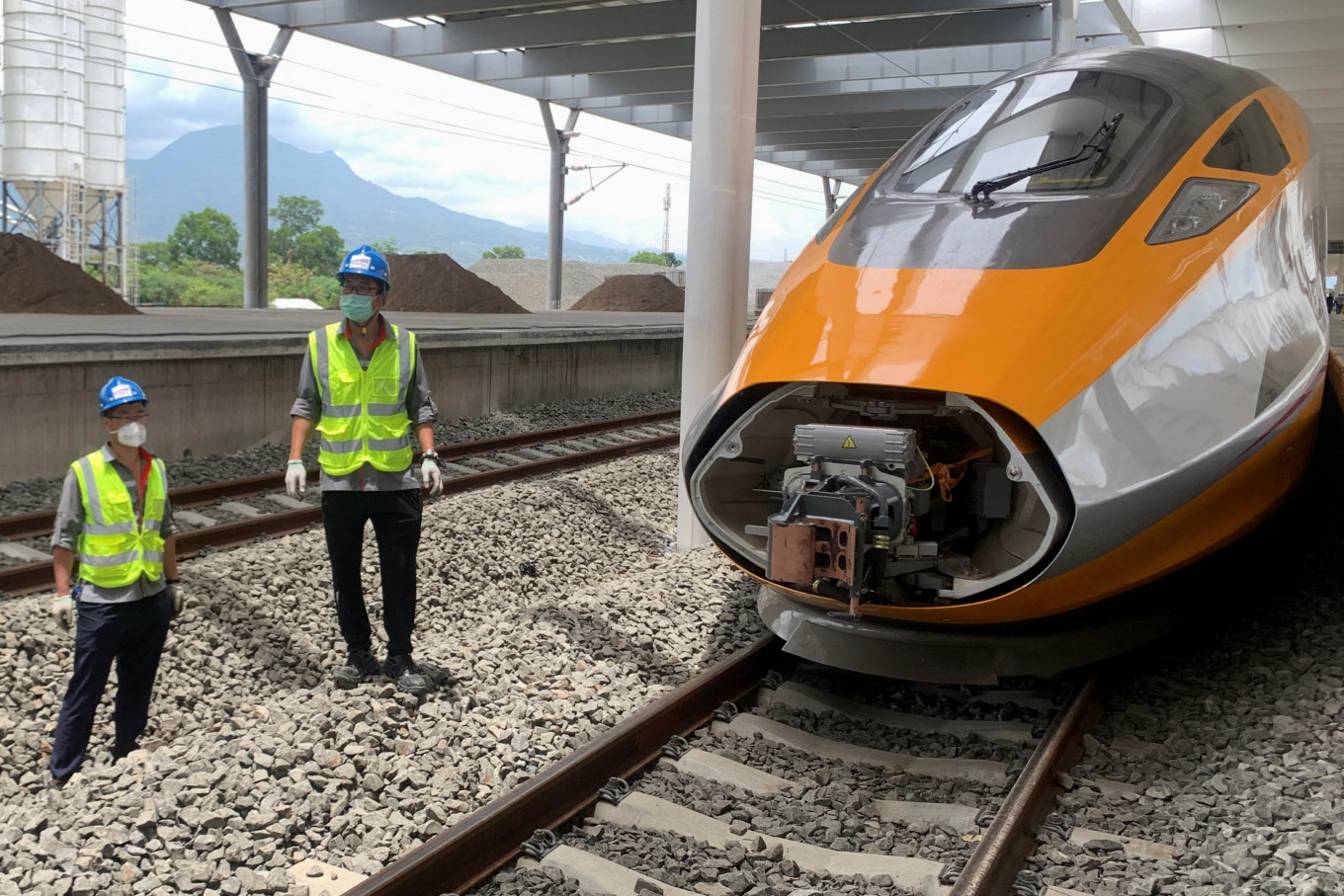Popular Reads
Top Results
Can't find what you're looking for?
View all search resultsPopular Reads
Top Results
Can't find what you're looking for?
View all search resultsNot in the driving seat
The historic high-speed railway project only focused on physical construction, while the human resources development was left neglected, at least until February of this year.
Change text size
Gift Premium Articles
to Anyone
I
t has been decided that Chinese staff will operate Indonesia’s first high-speed rail link, at least for the first year pending the readiness of local employees to take over the role. The move appears to be a compromise to ensure the train will start plying the Jakarta-Bandung route in August while meeting the strict safety standards that the government demands.
Although it appears the project is largely complete, it has just faced another delay in terms of the preparedness of local human resources to operate the flagship mode of transportation built as part of China’s Belt and Road Initiative campaign.
To be more precise, such a postponement will mean the promised technology transfer that the government has envisioned since the start of the project, will not materialize anytime soon. It may take one or two years, even longer, from the day the high-speed railway is inaugurated in August before the much-awaited transfer of technology takes place.
Operating a high-speed rail system naturally offers far tougher challenges than conventional trains as the former is a novel technology with a complexity that dwarfs the latter. This means local operators will have to learn from scratch from China, which has mastered the technology.
The technology transfer will be completed when we have the capacity to run and maintain the rail link, solve technical problems that may arise, and to develop our own high-speed train technology or help other countries build theirs.
Unless the government can prove the local human resources are capable of independently running the new railway, there is not much we can celebrate when the high-speed train begins operations sometime in August.
Moreover, the delay would also suggest bad planning in the project, for which the government has to take responsibility. Indeed, the project has been plagued by controversies ever since the government surprisingly gave the project to China, after potential bidder Japan completed its feasibility study and financing scheme.
The project has been ongoing for more than seven years since it kicked off in January 2016. It was planned to be completed in 2019, but multiple problems, technical and non-technical, including the COVID-19 pandemic, hindered the construction work.
Yet, during all that time, the historic project only focused on physical construction, while the human resources development was left neglected, at least until February of this year, when a series of training sessions for local operators began.
Experts have told The Jakarta Post, the current timeline will only net our soon-to-be local operators five months of training until the August partial operation date, whereas it should require eight months for experienced drivers with at least 100,000 kilometers of driving distance under their belts or twice that time for less experienced ones.
Should the training be concluded, it is still inadvisable to hand over the operation to Indonesia, as it would take some time before local operators get used to the system.
The government has frequently unveiled its completion target over the past years, which means it should have been aware of what needed to be prepared ahead of that time, including the training of local staff.
If the government is serious about operating the rail link in August, then the training should have begun way before this February, in parallel with the construction on the ground.
Furthermore, according to KCIC, a consortium of Indonesian and Chinese companies responsible for the project, local operators undergo training at home with the help of Chinese instructors who are flown into the country from China.
This poor planning has also resulted in multiple cost overruns, which may not be settled when the high-speed train is inaugurated.
Nevertheless, we must face the fact that we will not be operating our own high-speed trains, a symbol of modernity and prosperity, for some time, as we ignored the human resources element of the flagship project.











